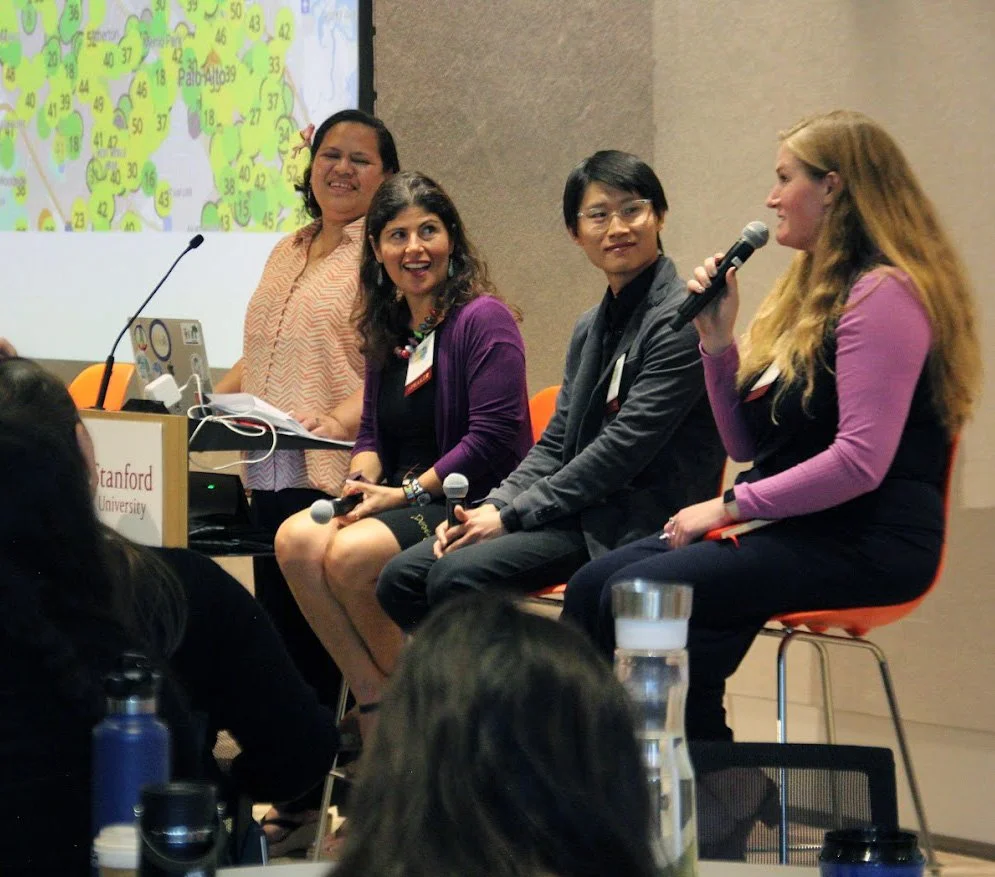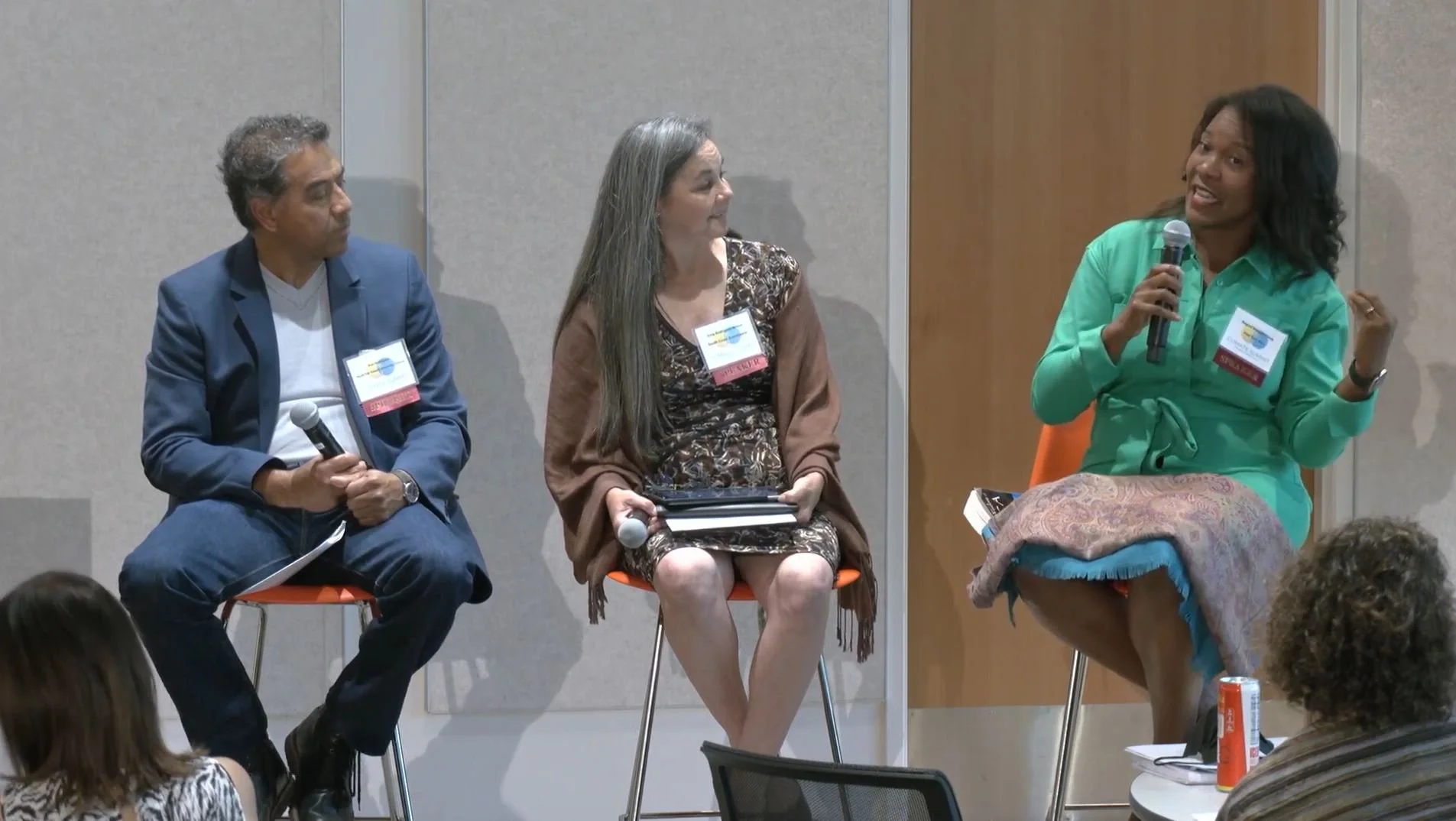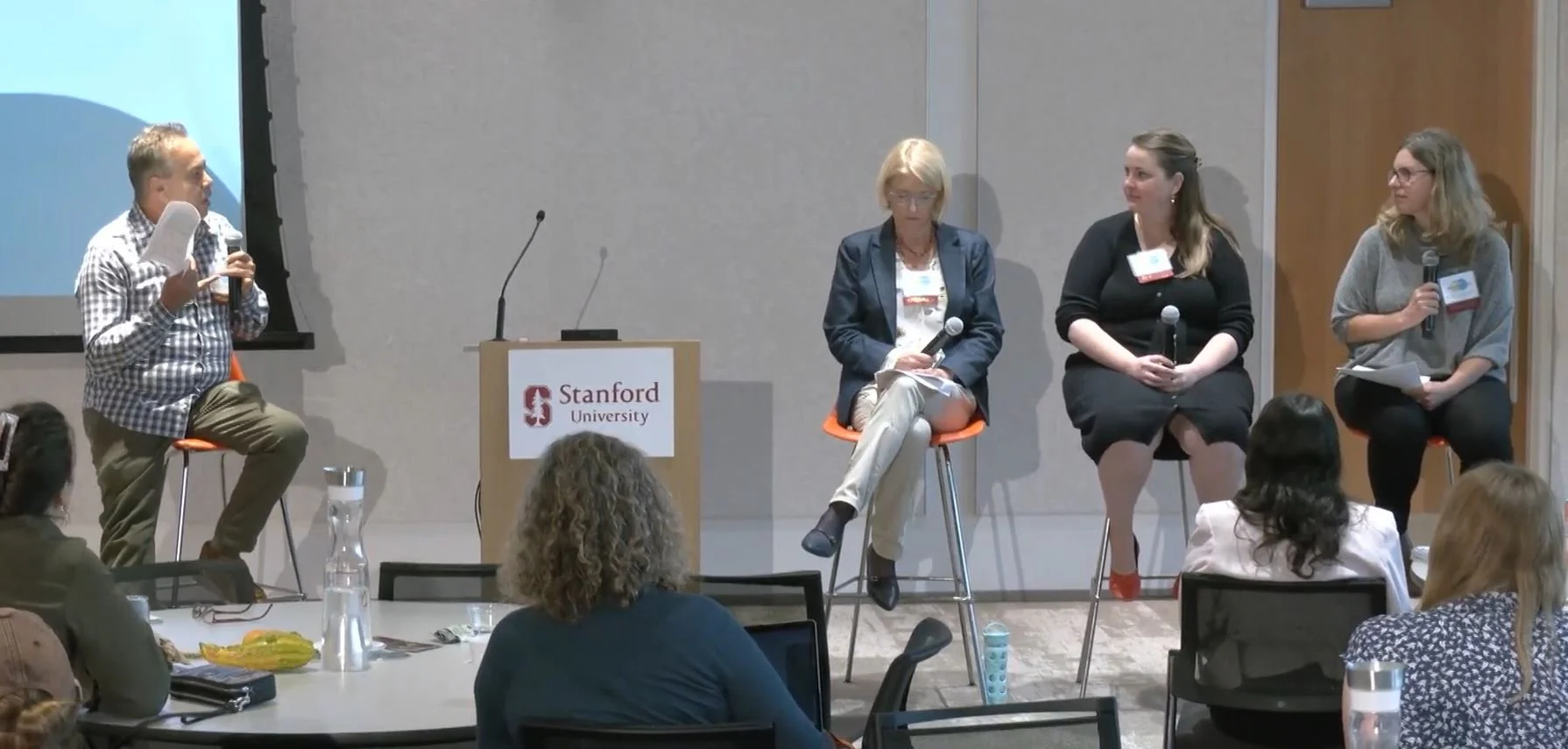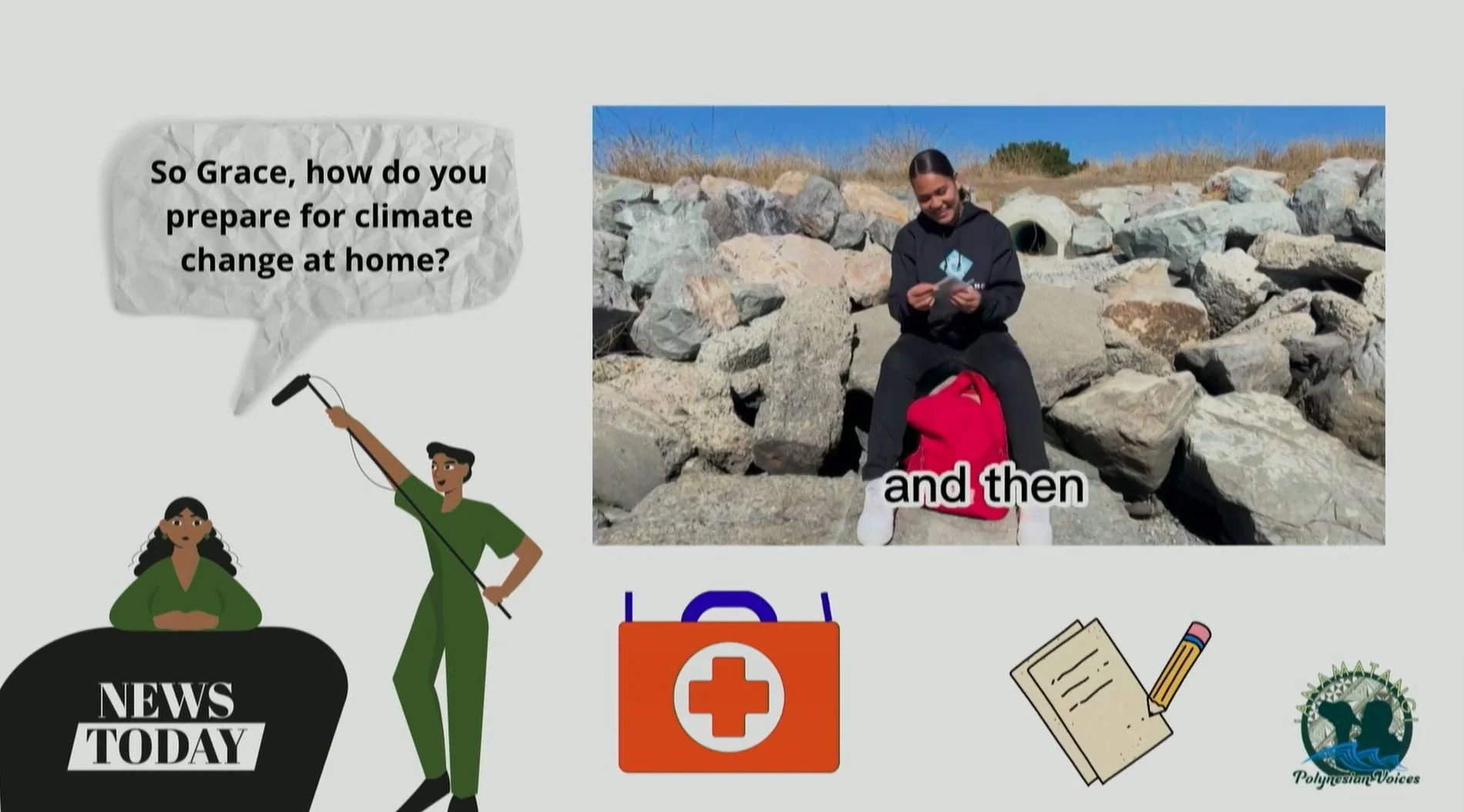Climate Summit for San Mateo County
Monday, October 3, 9:00 am - 4:00 pm, Zoom Recording & Slides
MEETING RECAP
Welcoming Remarks and Keynote
On October 3, Thrive Alliance, along with Climate Resilient Communities, Nuestra Casa, and Rise South City hosted the first annual Climate Summit for San Mateo County. The occasion was monumental for everyone working together in the field with frontline communities against climate change. The event focused on engaging new potential relationships to learn how to the efforts in climate adaptation and equity. The Summit brought together nearly 250 people virtually and in person from community-based organizations, philanthropy, government, academia, and community members to share knowledge and make collective commitments to ensure climate adaptation and equity.
To open the event, Petra Silton, Senior Program Director at Thrive Alliance, said, "Adaptation to these evolving conditions means changing both our social structures and our built environment in a way that leaves nobody behind." The Summit was co-presented with Stanford University and to welcome everyone Kathryn "Kam" Moler, vice provost and dean of research at Stanford reminded us of recent global climatic events, from Florida's severe and frequent hurricane events to Pakistan's unimaginable floods. She explained why she believes universities must continue studying the science of climatic events but also focus on finding solutions together with frontline communities through engagement and having them be an active voice acrros the studies.
Menlo Park Council Member Cecilia Taylor was the Summit's keynote speaker. She set the tone for the rest of the event. Sharing her experience as a community member and now a political leader about the disinvestment and inequities in her neighborhood of Belle Haven layout how disadvantage communities have historically dealt with climate change. The community on the east side of Highway 101 was annexed by Menlo Park more than 70 years ago, including a lack of public transit, medical and pharmaceutical services, tree canopy, updated safety and hazard mitigation reports, and more.
Adaptation and Equity: Translating Science into Policy and Practice
Violet Wulf-Saena, Executive Director at Climate Resilient Communities, introduced the first panel Natalie Herbert, Postdoctoral Researcher at Stanford Woods Institute for the Environment, Dr. Desiree LaBeaud, Professor at Stanford University and Co-Founder, HERI-Kenya, and Derek Ouyang, Research Manager in Stanford's Regulation, Evaluation, & Governance Lab. The panel discussed how they pivoted their research framework to focus on community input and make connections with the community. It has been investigated that wildfire air pollution is likely to have more potential to create oxidative stress than background pollution due to increased PAH levels. Dr. LaBeaud shared how climate change affects the health of vulnerable populations. Derek Ourang pointed out that current funding through the county is very structured and focused on sea-level rise. He noted that funding should be more flexible and expand in other areas the climate change also affected frontline communities. Natalie's research aimed to understand how climate hazards affect households and whether air purifiers and air quality monitors could improve health. Building on these research types could provide better solutions when community input is considered.
Community Leadership: Shifting Power to Frontline Communities
Miriam Yupanqui, Executive Director at Nuestra Casa, introduced the second panel. She presented Irma Rodriguez Mitton, Executive Director, South Coast Sustainable, Ever Rodriguez, Founding President, North Fair Oaks Community Alliance, and Regina Wallace-Jones, City Councilmember & Former Mayor of East Palo Alto. The topic of discussion was leadership and power dynamics in policymaking. Across the panel, there was an agreement that to be more inclusive, all sectors should seek to understand the communities’ norms and expand them.
Resources and Accountability: Funding Community Priorities
Julio Garcia, Executive Director at Rise South City, presented the last panel: Carolyn Bloede, Director, Office of Sustainability, San Mateo County, Dana Brechwald, Adapting to Rising Tides Program Manager, Bay Conservation and Development Commission (BCDC), and Laura Tam, Program Officer, Resources Legacy Fund. The panel discussed how the process of granting grants is changing by including community leaders and voices. They also provided great tools and ways to continue pushing for a seat at the table.
Youth Presentation & Collective Commitments
The event closed with a youth presentation by 'Anamatangi Polynesian Voices, where they shared their experiences in how they work to improve their communities through education and outreach efforts.
Everyone came together to write down and Make a Collective Commitment on a sticky note about how they will pursue equitable adaptation in San Mateo County. There were five categories to choose from: Funding and Resources, Government Structure and Practices, Policy, Relationships, Power Dynamics, and Education and Mindset.
The event brought together people from different backgrounds and sectors, opening opportunities to form new connections. The next Climate Summit is set to convene again next year, hopefully bringing those collective commitments into action.






